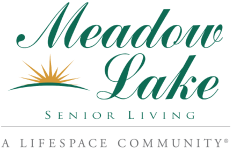
When the time comes to consider additional care or assistance for yourself or a loved one, the number of options available can seem overwhelming. Understanding the distinctions between assisted living and skilled nursing care can help you make an informed decision, giving you confidence and peace of mind. Here’s what you need to know about the differences between these levels of care and how to determine the best option for your specific needs.
What is Assisted Living?
Assisted living is a residential option designed for seniors who value their independence but might need extra help with daily living activities (ADLs). These communities offer a unique blend of personal freedom and supportive care among peers. Residents typically have private apartments or rooms and are encouraged to furnish and decorate them to their taste, providing a cozier sense of home.
Assisted living communities prioritize maintaining an active social life. They often feature a robust calendar of activities—from art classes and movie nights to individualized fitness sessions and group outings—supporting residents’ engagement and socialization. This setting is ideal for seniors who can manage their day-to-day lives with minimal to moderate support, which might include assistance with bathing, dressing, medication management, and transportation.
What is Skilled Nursing?
Skilled nursing care is designed for those who need a higher level of care and support around the clock. With this level of living, residents often have 24-hour supervised assistance with meals, activities, and health management support as needed. Skilled nursing is typically for those recovering from illness or surgery or those needing long-term care due to chronic conditions or disabilities.
Skilled nursing services are usually performed by medical professionals, including registered nurses, licensed practical nurses, and certified nurses assistants. They may also include physical, occupational, and speech therapists. The care provided here is more intensive than in assisted living, with services such as wound care, rehabilitation, intravenous therapy, and comprehensive monitoring of vital signs.
How Does Skilled Nursing Differ from Assisted Living?
Understanding the differences between skilled nursing and assisted living is vital to making the best choice for your scenario. By understanding these differences, families can decide which community will best support one’s health and happiness.
Levels of Care
Skilled nursing communities are equipped for residents who need substantial care and are staffed around the clock with professionals such as registered nurses and therapists. This setup suits those recovering from serious health issues or managing chronic conditions. Assisted living focuses more on assistance with daily activities and medication management, rather than intensive oversight and treatment.
Living Arrangements
Skilled nursing and assisted living are tailored to residents’ needs. Skilled nursing has a more clinical setup with specialized equipment and hospital beds to support severe health conditions. In contrast, assisted living offers a more traditional residential atmosphere, where residents enjoy private apartments and shared spaces like gardens and lounges, fostering a more independent lifestyle.
Social Activities and Personal Independence
Assisted living promotes an active, social lifestyle with various activities, such as classes and outings, to support residents’ independence while providing necessary assistance. Skilled nursing also offers activities, but these are specifically tailored to residents’ abilities and health conditions. In these situations, the focus is primarily on healthcare and rehabilitation, which can constrain the level of independence and engagement compared to assisted living.
Finding the Right Level of Care for Your Situation
Deciding between assisted living and skilled nursing usually comes down to the individual’s specific health needs and independence level. Consider the following when making your decision:
- Health Requirements – Does your loved one require round-the-clock monitoring and assistance, or do they only need help with everyday tasks like bathing, dressing, or meal reminders?
- Mobility – Can they move independently, or do they need assistance getting from place to place?
- Cognitive Health – If your loved one has cognitive issues, does the community offer specialized care for this condition and secure areas to prevent wandering?
- Social Needs – How important is an active social life to their overall happiness and well-being?
When touring communities, pay close attention to team members’ interactions with residents, the cleanliness and upkeep of the rooms and common areas, and the overall happiness of the residents. These factors can tell you a lot about the quality of life you or your loved one may experience.
Let Us Help You Plan Your Future
Both assisted living and skilled nursing play critical roles in supporting seniors in different stages of life. By understanding the key differences and assessing your situation’s needs, you can choose a community that best matches your requirements and lifestyle preferences. If you’re seeking a community that offers high-quality assisted living and skilled nursing care, contact our helpful team at Meadow Lake. We’re dedicated to providing tailored care that respects the dignity and individuality of each resident. Contact us today to learn more about our services. We can help make this important decision more manageable for you.
